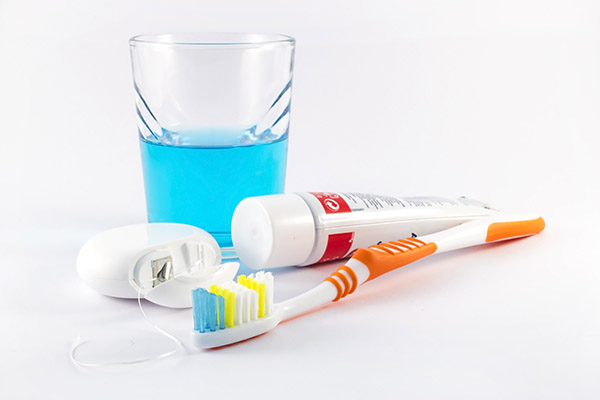 Oral hygiene protects your teeth and other oral tissues from decay and infection. This includes brushing and flossing daily. Dental professionals also recommend visiting the general dentistry office for dental examinations and cleanings at least twice a year to maintain excellent oral health.
Oral hygiene protects your teeth and other oral tissues from decay and infection. This includes brushing and flossing daily. Dental professionals also recommend visiting the general dentistry office for dental examinations and cleanings at least twice a year to maintain excellent oral health.
The importance of daily oral hygiene
Oral hygiene is critical to one's overall health and wellbeing. Untreated oral illnesses have been linked to an increased risk of developing other health problems. Oral hygiene's main objective is to avoid plaque accumulation, leading to tooth damage or gum infection. Here are some reasons why dental hygiene is essential:
Impacts overall health
The oral cavity is the main portal to your body's interior organs. The mouth is also a good place to look for early signs of systemic illnesses. Systemic illnesses, such as diabetes, may manifest in the mouth as a lesion or other dental issues, such as gum infection.
According to Harvard University research, individuals with periodontal disease have a higher risk of heart disease. Periodontal disease raises the body's inflammatory load. Chronic inflammation may affect many different areas of the body, including the arteries.
Aside from diabetes and cardiovascular disease, poor dental hygiene may lead to health problems like bacterial pneumonia, pregnancy complications, infective endocarditis, cancer, low birth weight, and sepsis. Maintaining daily oral hygiene may help reduce the chance of developing health problems. To maintain excellent oral health and cleanliness, it is also a good idea to schedule regular dental exams at the general dentistry office every six months.
Guards against tooth loss
For both children and adults, tooth loss is the most prevalent dental issue. Poor oral hygiene is one of the numerous causes of tooth loss. Plaque accumulation from inadequate dental hygiene may lead to severe tooth decay or gum infection, leading to tooth loss.
Plaque accumulation can be reduced by brushing and flossing regularly. Brushing and flossing are not enough to keep one's oral health and hygiene in tip-top condition; professional dental cleanings from the general dentist are critical. This is to guarantee that plaque and tartar are removed from hard-to-reach teeth and gum lines.
Improves the smile’s whiteness and brightness
Patients must maintain excellent dental hygiene daily to maintain a healthy smile. Plague-free teeth make people feel more confident when smiling.
Daily oral hygiene tips
Here are a few pointers to help patients achieve and maintain excellent dental hygiene:
- Limit sugary snacks and eat nutritious meals
- Tobacco products should be avoided
- After meals, rinse the mouth with water or eat sugarless gum
- Brush the teeth at least twice a day or after each meal
- When participating in contact sports, use a mouth guard to protect the teeth
In conclusion
These are just a few of the many reasons why dental hygiene is crucial. Maintaining excellent oral hygiene is beneficial not just to your teeth but also to your overall health. To learn more about how the general dentist can assist you with maintaining excellent dental hygiene, contact the general dentistry office.
Request an appointment or call Gorfinkel Dentistry at 954-231-5007 for an appointment in our Plantation office.
Related Posts
A general dentist can relieve a toothache after a proper assessment. This type of dental problem is often accompanied by swelling. It may even occur with a migraine, fever, or earache. Tooth pain needs immediate treatment. Here are the details on what a general dentist can do for a toothache.Each toothache is different. That is…
Tooth decay is one of the most common oral health concerns that general dentistry offices deal with. The good news is that there are effective and minimally invasive ways to treat most cases of tooth decay, and patients can prevent tooth decay from developing through good oral hygiene practices and regular dental cleanings.Tooth decay is…
General dentistry involves preventative, restorative, and cosmetic dental treatments like teeth whitening. Teeth are constantly bombarded by substances that cause stains and discoloration, affecting the way that they look.The most common type of teeth whitening treatment performed by dentists involves using bleaching agents like hydrogen peroxide to remove stains from the outer surfaces and deep…
